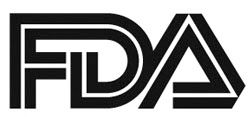FDA Priority Review Granted to Remestemcel-L for Pediatric Steroid-Refractory Acute GVHD
The FDA has granted a priority review to a Biologics License Application for remestemcel-L, an allogeneic cell therapy for the treatment of children with steroid-refractory acute graft-versus-host disease, according to a press release from Mesoblast Limited.

The FDA has granted a priority review to a Biologics License Application (BLA) for remestemcel-L (Ryoncil), an allogeneic cell therapy for the treatment of children with steroid-refractory acute graft-versus-host disease (aGVHD), according to a press release from Mesoblast Limited.1
A Prescription Drug User Fee Act target date of September 30, 2020, has been set for a decision on the BLA. The FDA has also indicated that the agency will hold an Advisory Committee Meeting to discuss the application and potential approval.
"There is a critical need to improve survival outcomes in children suffering from the more advanced stages of this devastating disease. The acceptance of the BLA represents an important milestone for the Company. Mesoblast is on track in its preparation for the potential launch of Ryoncil, including meeting its target inventory build and commercial team roll-out," said Silviu Itescu, MBBS, CEO of Mesoblast, in a statement.
Remestemcel-L is a therapy consisting of culture-expanded, adult allogeneic bone marrow-derived mesenchymal stromal cells from an unrelated donor. The treatment is believed to be able to counteract the inflammatory process of steroid-refractory aGVHD due to its immunomodulatory properties.
Findings for remestemcel-L were aggregated from 3 different trials and presented at the 2020 Transplantation & Cellular Therapy Meetings.2 The dataset included 309 patients from a single-arm phase III trial of remestemcel-L after steroid failure; a pediatric subset of a randomized, controlled trial of patients treated in the second line; and an expanded access program. Patients received remestemcel-L as 8 intravenous infusions at 2 x 106cells/kg over 4 weeks.
Across the dataset, patients had a mean age of 8.9 years and the severity of their aGVHD was grade C or D in 82% by International Bone Marrow Transplant Registry criteria. Grafts were from the bone marrow in 46% of patients, mobilized blood in 20%, and cord blood in 31%. Donor grafts were unrelated or mismatched for the majority of patients (91%).
At day 28, the overall response rate (ORR) was 66%, consisting of complete responses in 18% and partial responses in 48%. Patients with grade C or D aGVHD at baseline had an ORR of 65%.
At day 100, the survival rate was 68%. The day 28 ORR strongly predicted for survival at day 100 with 84% of responders surviving to day 100 compared with 39% of nonresponders. This association was found to be consistent across aGVHD grades. In addition, day 28 ORR also strongly predicted day 180 survival with 83% of responders still alive at day 180.
No infusion-related adverse events or safety concerns were reported with remestemcel-L infusions. A majority of the treatment-emergent serious adverse events reported, including most frequently infections in 28% and respiratory-related events in 18%, were considered to be related to the underlying disease or aGVHD. Only 6% of events were considered by investigators to be possibly treatment-related.